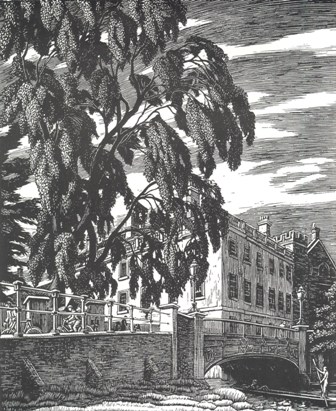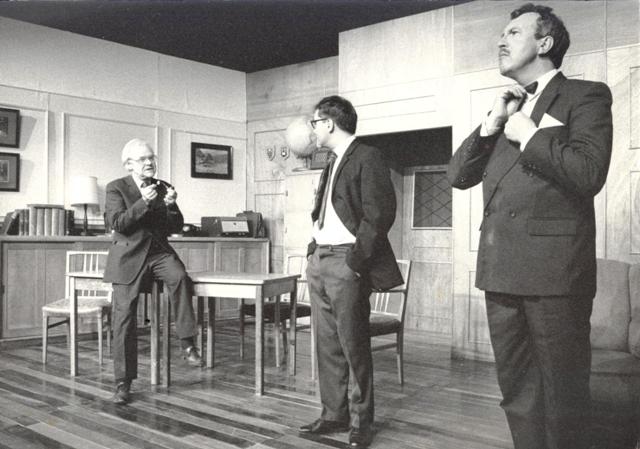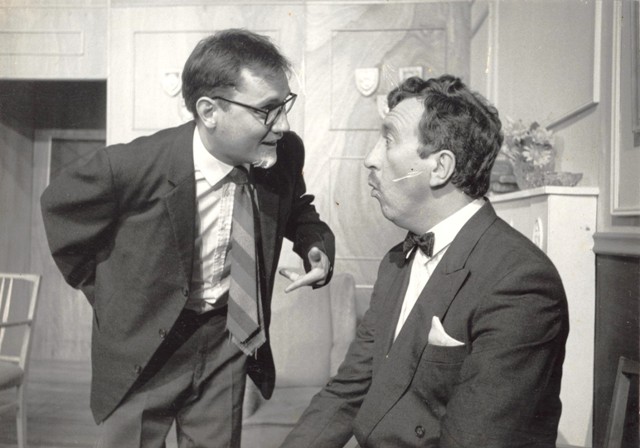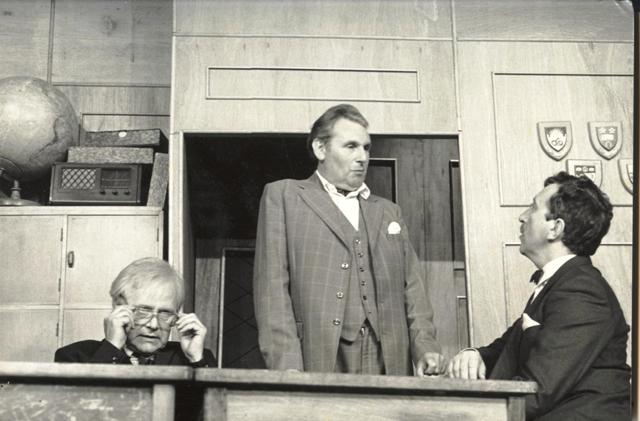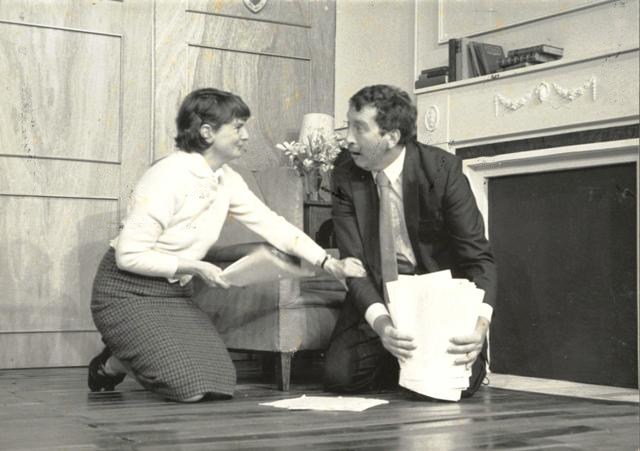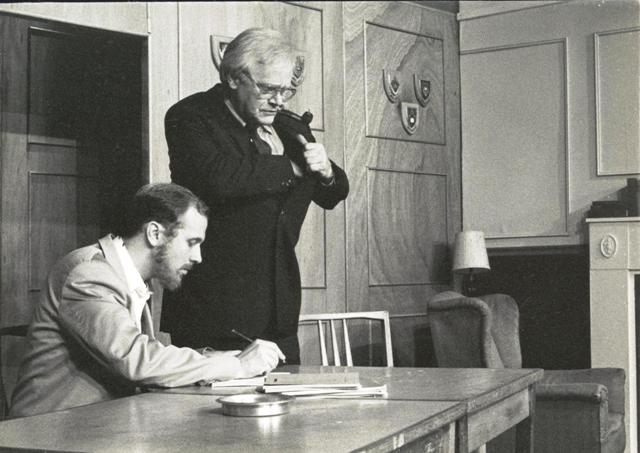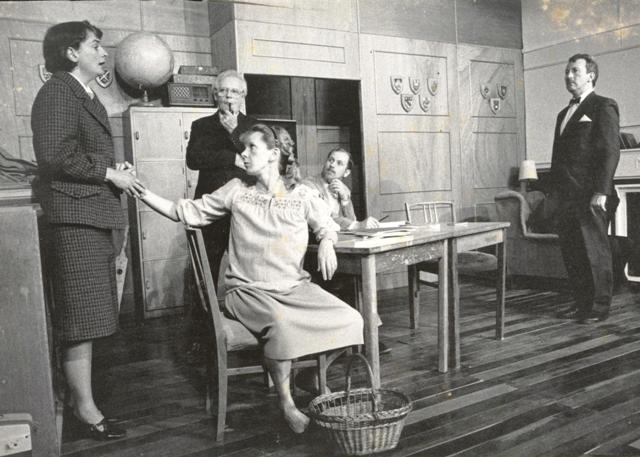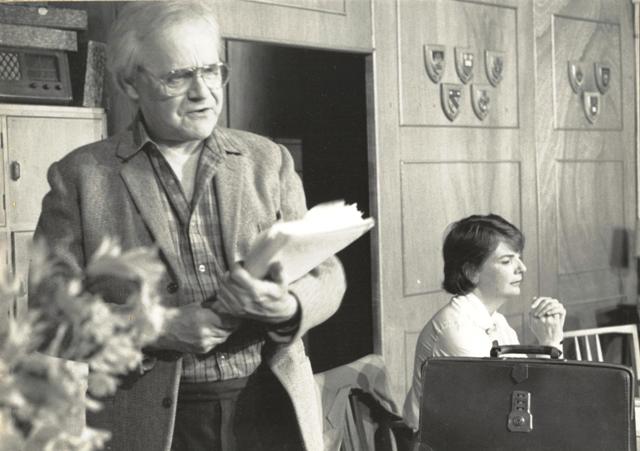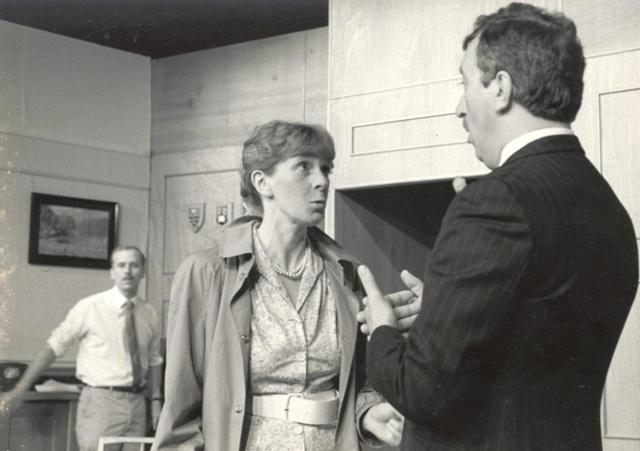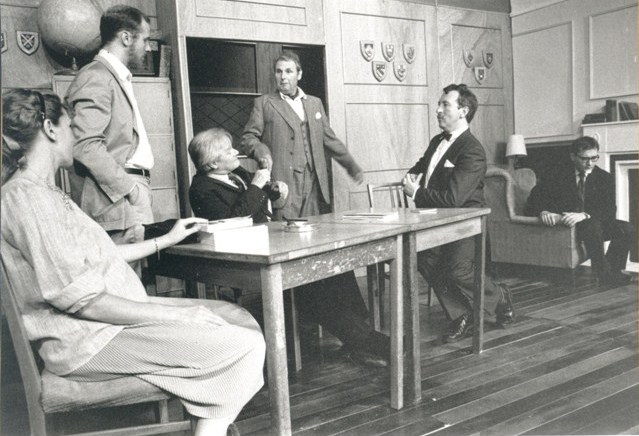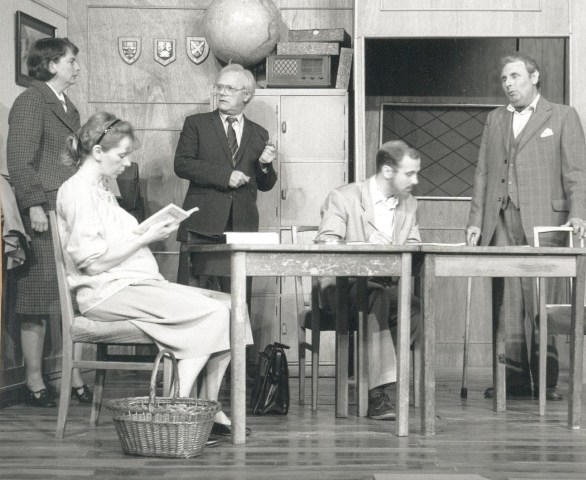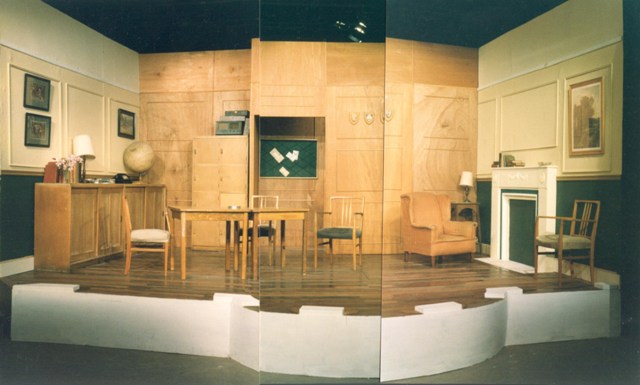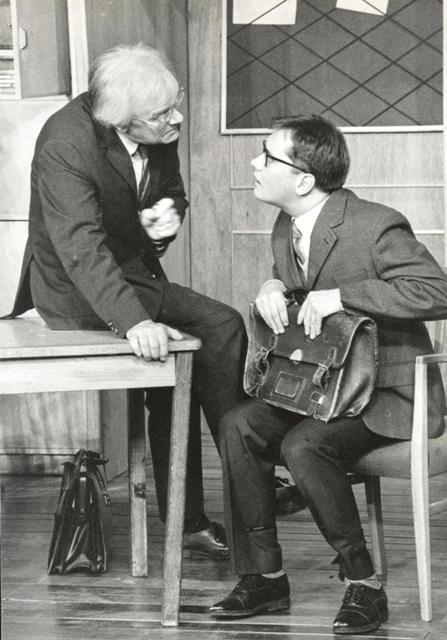Quartermaine's Terms
Written by Simon Gray
Thursday 20th July to Saturday 22nd July and Tuesday 25th July to Saturday 29th July 1989
Directed by David Penrose
At the Cull-Loomis School of English, English is Spoken and English is taught to foreigners eager to learn. But in the staffroom there is confusion and farce as no-one seems to speak the language at all. The comedy is rich, though it is no laughing matter that every term may be Quartermaine's last.
previous
production
next
production
Simon Gray CBE (1936 - 2008)
Simon Gray was born on Hayling Island and went to Portsmouth Grammar School. He read English at Cambridge and spent 20 years as a university lecturer in English literature at Queen Mary, University of London. For eight years in the late Fifties and early Sixties he also taught in a foreign language school not so very different from the Cull-Loomis School of English - the setting of his 1981 play 'Quartermaine's Terms'.
His first novel, 'Colmain', was published in 1963 and was followed by 'Simple People', 'Little Portia' and 'Breaking Hearts'. (He also wrote 'A Comeback for Stark' under the pseudonym Hamish Reade). His career in drama began when he adapted one of his own short stories, 'The Caramel Crisis', for television in 1966. A long string of successful plays began in 1967 and his 40 published dramatic works include 'Butley' the 'Rear Column' and 'Stage Struck'. More recently he wrote 'After Pilkington' for the BBC and 'Melon' for the West End.
In his later years he became well-known for his memoirs, which included his thoughts and reflections dealing with his terminal cancer. In 1990 he was given the BAFTA Writer's Award and in 2005 he received a CBE for his services to drama and literature.
'Quartermaine's Terms' is set in the 1960s, in the staff-room of the Cull-Loomis School, Cambridge where English is taught as a foreign language, and the action takes place over a period of 5 school terms.The play follows the relationships between seven teachers at the school in particular that between Quartermaine and his colleagues.
The dominant theme is loneliness and during the course of the play, all the characters experience the pain of being or feeling alone. Mark's wife leaves him; Derek (from Hull) finds Cambridge initially unwelcoming; Eddie is ultimately bereaved by the loss of a partner; Anita's husband is a philanderer; Henry is trapped in a dysfunctional family and Melanie is trapped as her Mother's carer. Quartermaine himself is a painfully lonely bachelor with no friends other than his colleagues at the school. He's also painfully inept as a teacher, but the politeness, kindness and general "Englishness" of the other staff seem to save him from being let go time and again.
The significant events in the teachers' lives take place off stage and involve characters who we do not see. Simon Gray pokes gentle fun at the British penchant for "muddling through" and "not complaining" - coupled with a tendency not to take firm action when necessary. Important issues are constantly avoided through politeness and fear of embarrassment. Whilst the play is at times highly comical it has a more serious theme that the struggles of each character with their own version of loneliness are more than they can cope with. Above all Quartermaine himself is an increasingly pathetic figure lost in his own confused thoughts - and ultimately deserted. His future as the play closes is poignantly bleak.
top of page
